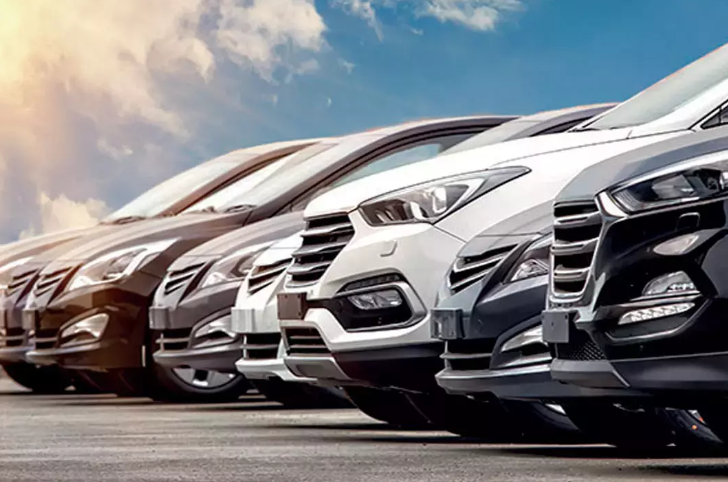But the fall in sales of small cars and the rise in SUV sales may not be only due to Indians now ditching small cars and preferring to buy SUVs. Due to several factors, carmakers are focusing more on SUVs, making them affordable even if they have to downsize them in different respects, just as small-car segment crumbles under stress.
The sale spike
Suddenly, more Indians are buying SUVs than hatchbacks and sedans, something not foreseen a few years ago in a market defined by small cars. SUVs now make up half of all passenger vehicle sales in India, doubling their market share in five years, ET has reported. As much as 52% of the 363,733 passenger vehicles sold in September were SUVs, a record for a month, increasing their market share from about 43.6% in September 2022, a nearly 20% spike.
SUV sales have grown to comprise 48.3% of total vehicle sales in the first six months of this fiscal year, up from 41.5% in H1FY23. The share of hatchbacks has slipped to 30% in H1FY24 from 35.1% in the same period last fiscal. Despite launches of several new models such as Hyundai Verna, Volkswagen Virtus and Skoda Slavia, the share of sedans, too, declined to 9.3% in the fiscal first half from 10.3% in H1FY23.
SUVs have seen a four-fold increase in their share among first-time buyers in the country over the past decade as a growing number of Indians flocked to the four-wheelers with higher ground clearance amid improved affordability and a wider choice offered by automobile manufacturers, ET has reported.
About a third of first-time car buyers in the Indian market now drive home an SUV compared to less than a tenth a decade ago, when hatchbacks ruled the country’s roads, according to industry data. The share of additional and replacement buying in the category during this period has fallen to 69% from a whopping 92% in 2014.
Why SUVs are the preferred vehicle for Indians
With their dominating road presence, high ground clearance, bulky look, more room inside and additional features, SUVs are winning hearts of those who were earlier fixated on hatchbacks and then upgraded to sedans. Indian city roads with potholes and numerous speed-breakers as well as contingencies such as floods make SUV a preferred vehicle.
The form factor works brilliantly in Indian conditions, and automobile manufacturers have transformed their product portfolios to feed an explosion of demand. They have reconfigured SUVs for urban mobility, while retaining the form as buyers seek comfort and stature. They have also made the smart move by jettisoning most off-roading capabilities to make this class of vehicles more affordable.
The roomier vehicles have a special value proposition in India where cars carry more people than in other countries. The higher driving position and bigger ground clearance also work better on road conditions that are deteriorating as the vehicle population rises.
The shift in consumer preference away from low-slung sedans is aided by overlapping price segments as SUVs shrink and lose their all-terrain, or even crossover, functionality. New vehicle safety requirements have made entry-level hatchbacks more expensive, and the buyer has room to stretch mildly to fulfil an aspiration for road presence. Car makers are de-prioritising premium hatchbacks and entry-level sedans, particularly when it is relatively easy to graft engines and drivetrains from these segments on to compact and mid-sized SUVs. Most of these ‘sports utility vehicles’ don’t conform to the ladder-on-frame design that off-roading purists seek. It’s relatively easy to roll out taller versions from existing hatchback and sedan line-ups.
“There is not only an increased preference for the body type, with the introduction of more compact models there is a price overlap between entry SUVs. Entry SUVs accounted for 22% of sales in the overall market (in 2022-23), up from 1% in 2014,” Shashank Srivastava, senior executive officer (marketing and sales) at Maruti Suzuki, told ET recently.
Can there be other reasons too?
Is it just the changing consumer preference that has caused such a tectonic shift in India’s car market?
The fall in small car sales is not all about bigger aspirations of young Indian consumers. “Small cars are not selling not because people are upgrading,” Shashank Srivastava, senior executive director (marketing and sales) at Maruti Suzuki has told ET. There is pressure on purchasing power of consumers buying vehicles priced up to Rs 10 lakh, and more particularly those priced up to Rs 7 lakh. “This has probably led to telescoping of the demand downward from this segment to used cars and even recently to two-wheelers,” Srivastava said.
“With increased access to credit, consumers starting their careers are not going for vehicles priced below Rs 10 lakh,” Madan Sabnavis, chief economist at Bank of Baroda, has told ET. At the same time, Sabnavis said, “Buyers migrating from two-wheelers to four-wheelers are seeing stress in disposable income, and also getting impacted by the hike in interest rates we have seen in the past one year.”
Stress at the lower-end of customers and premiumisation as well as easy access to credit in the middle customer segment have forced carmakers to focus on SUVs instead of smaller cars. That’s why there are only about 13 hatchback models currently being sold in the Indian market, as against 12 SUVs each in the entry and midsize segments.


